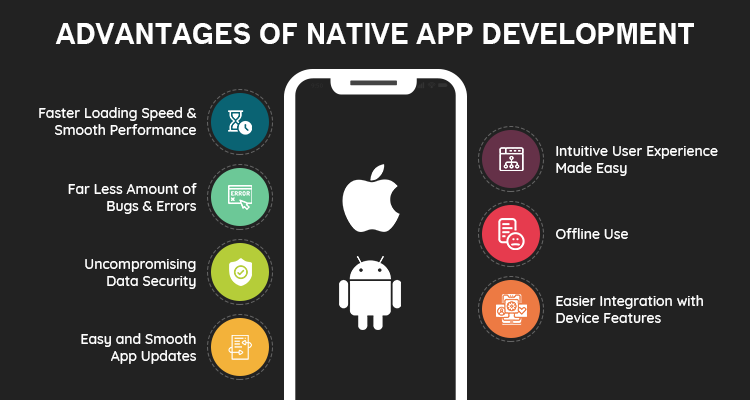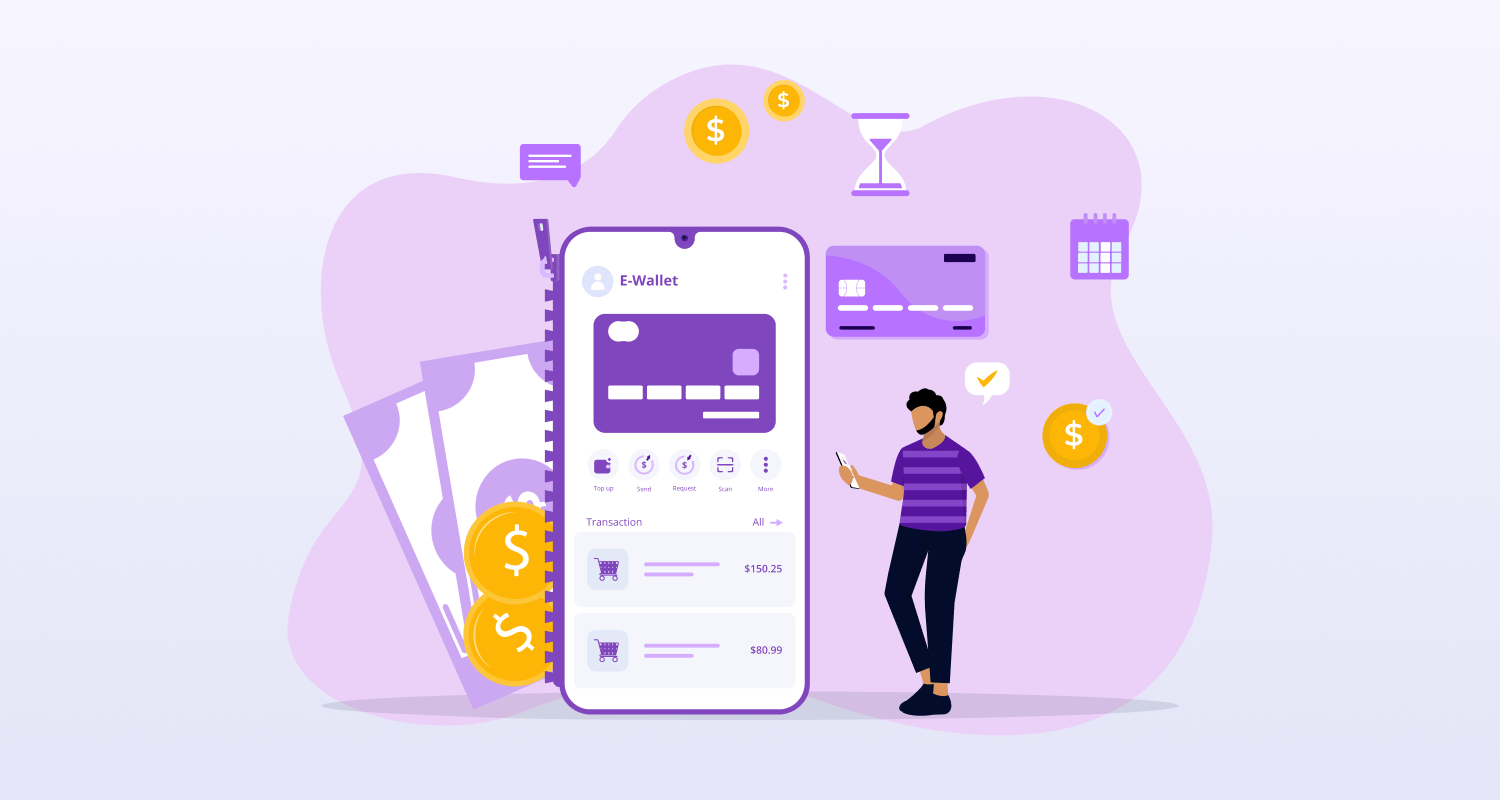It is a no-brainer fact that mobile apps have penetrated into every area of living and no enterprise can think of making a digital presence without mobile apps. But since every business is coming with their own mobile apps and increasingly making these apps key to their strategic growth planning, the apps can no longer afford to have low performance, lack of ease for the users and slower loading speed. To avoid these performance issues and to give users experience a clear boost, often developers prefer native development instead of hybrid or web apps.
This is why we are here to explain once again the key reasons for developers to opt for native development. Let us explain a few of these reasons.
What Exactly Native Development Means?
Native mobile apps are apps that are built for a particular mobile operating system. For instance, a native iOS app will be built for the Apple iOS platform only. Instead of embracing the cross-platform development approach that uses the same code for multiple operating system platforms, native app developers use the code specific to the platform. For example, for building the iOS app the developers of an iPhone app development company will use Swift or C++ as the coding language.
Just because they are built for a specific mobile operating system platform, they help the apps to integrate the device features and platform-specific UI elements easily. This only results in delivering a smoother, frictionless, easier and more rewarding user experience. Superior platform-specific user experience is the key benefit for which many app projects embrace the native development approach.
When it comes to native app development for mobile OS platforms like Apple iOS and Google Android, the developers have access to the platform-specific SDKs, UI and other development tools provided by these companies. Globally, a vast majority of the successful mobile apps across the platforms have been built with the native development approach.
Why Choose Native Mobile App Development Approach?
It is a fact that native development is more cost-intensive than hybrid web or cross-platform development approaches. It is also true that native development consumes more time than these approaches. In spite of this, native development tends to become popular simply because of the superior app performance and user experience. Well, let us explain the key reasons to choose native app development.
Faster Loading Speed and Smooth Performance
The ultimate incentive for taking the pain of building native apps separately for each platform is the app performance. Native apps can perfectly incorporate the features, design elements and other user experience attributes to ensure optimum loading speed and seamless performance. By using the core programming language and APIs of the mobile platform, native apps get the advantage of faster loading speed, smooth device-level integration, and performance.
Intuitive User Experience Made Easy
Every operating system platform has its specific UI elements and look and feel. Native apps are built with these UI elements to deliver intuitive user experience and easy interactions. Moreover, native apps can organically meet the guidelines of the respective OS platform and thus helps to deliver better user experience. From app onboarding to the landing pages to in-app messages and notifications, native apps in every regard offer a seamless experience for the users.
Far Less Amount of Bugs and Errors
Now, when it comes to coding errors and bugs, native apps have the advantage of being less prone to coding errors simply because the apps are built organically with one platform-specific coding language besides following the development guidelines of the platform. Native apps by using the latest and most recent SDKs of the OS platform remains less prone to bugs and errors. This is why native apps also don’t need to use third party bug fixing tools.
Offline Use
While web and hybrid apps hangs on to cache or go blank when network connectivity is lost, native apps can continue to work offline or even when there is no network connection around. This becomes possible because native apps can store contents and visual elements locally within the device and make them accessible when the app is being used offline.
Uncompromising Data Security
Unlike the hybrid and web apps which rely on the security features and settings if the browsers, native apps solely depend on the security features and safeguards offered by the operating system SDK and other tools. Moreover, these security safeguards are scrutinized from time to time by the developers and experts of the respective operating system.
Easier Integration with Device Features
Native apps are more flexible in respect of integrating the device hardware features. Since every mobile OS provides the developers some platform-exclusive APIs, this helps in integrating the device features more easily. This is why Native apps can easily access the most important device features such as accelerometer, GPS, fingerprint scanner, camera, contacts, reminders, compass, etc. On the other hand, web and hybrid apps for accessing these device features need to use some intermediaries and this often results in friction or delay in accessing device hardware features.
Easy and Smooth App Updates
Every app irrespective of the platform it is hosted from, needs to be updated frequently and often to deliver security patches, for offering enhancements or just to make value additions. Compared to hybrid or web apps, native apps can be updated more easily. This is why native app updates come so frequently and often. The new Android Q has even promised to deliver security updates for the native apps if the regular updates are delayed.
You may like this: How To Outsource App Development?
Conclusion
To conclude, there cannot be a better approach than iOS and Android native app development simply because these platforms help in every possible way to deliver a better native user experience. From app performance to maintenance to usability and accessibility, native apps excel in all regards.








